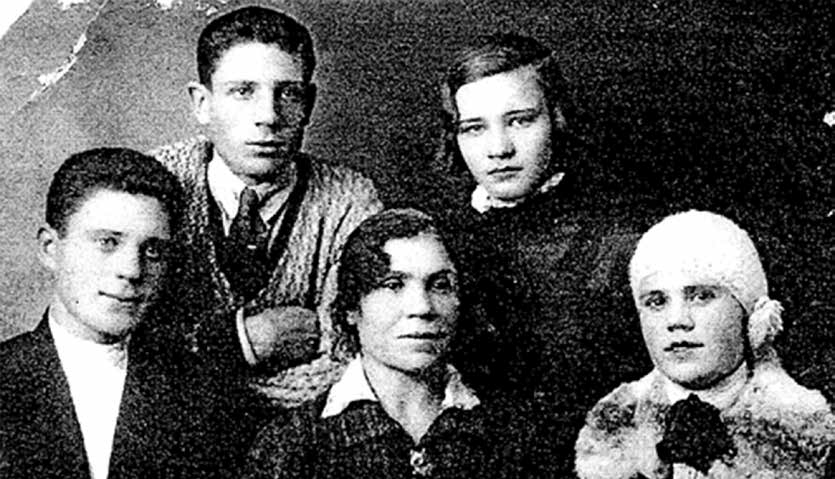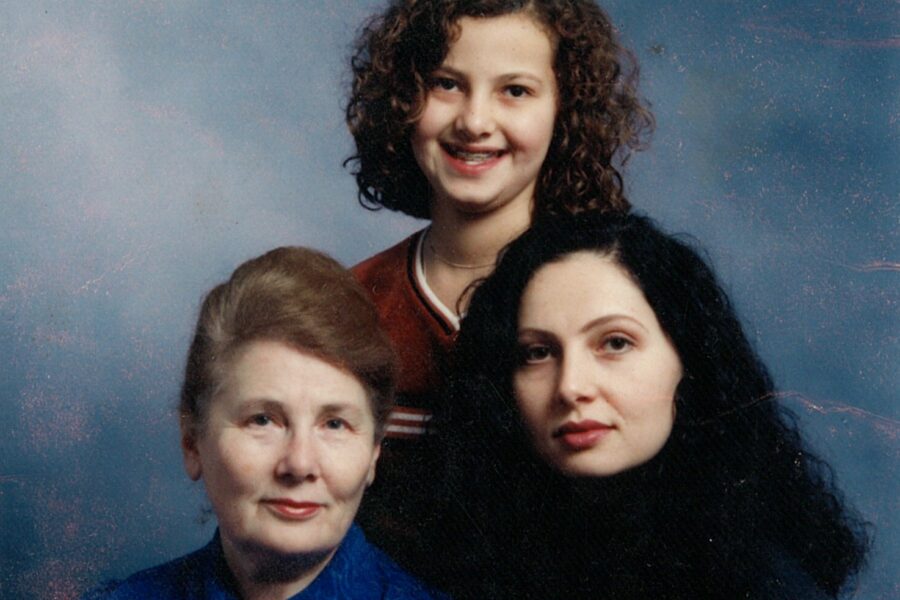The story of a beloved Ukrainian grandmother, righteous in her deeds, who never was officially recognized for risking her life to save Jewish people.
I was born on January 25, 1936, in Kharkov, Ukraine. My father, Nikolay lvanovich Kukhtin, worked at an electrical appliance factory. My mother, Mariya Nikolaevna Cherednichenko, worked at a perfume factory. My grandmother, Mariya Antonovna Cherednichenko, also lived with us. I loved her so much when I was a child and when I was an adult. I often remember her even today. Friends, neighbors, and other acquaintances respected Grandma for her kindness, optimism, and wisdom. They often came to her for advice or to share some news. After what we lived through under German occupation, Grandma’s character didn’t change, but she became less cheerful, and her hair turned white. But I will tell everything in order.
We lived close to the center of the city, on Znamenskaya Street, house #2, in a large two-bedroom communal apartment with a shared kitchen, bathroom, and other “utilities.” On July 21, 1941, my father chose to fight in the war as a volunteer. We didn’t know anything about his fate until February 1947, when we received a letter informing us that he was missing in action in October 1943 “… in the battle for our socialist Homeland, loyal to the military oath, with a display of heroism and courage.”
The factory where my mother worked was evacuated quickly in autumn 1941. My mother, who was “in charge of affairs,” stayed behind and supervised the loading of the equipment and documents into the train cars. By the time it was our turn to board the train, however, it was too late. German troops occupied Kharkov in 1941. Our apartment was “occupied” as well. We found shelter in a half-destroyed home on the same street. The walls were covered in cracks, and the roof leaked. My mother, who covered her head and face with a handkerchief in order to seem older and more frail, walked to the closest villages to exchange our clothes for food. Often she came home with nothing, but sometimes she brought back a pinch of wheat, some eggs, a head of cabbage, etc.
At the beginning of 1942, after the mass executions in Drobitskiy Yar, the roundups began. Leaving our home was dangerous and terrifying. Everywhere we looked, there were corpses of people executed by firing squads and bodies hung on trees. The occupiers grabbed everyone who was walking on the street and pushed them into boxcars that were then filled with gas. The gas suffocated and killed everyone inside. The corpses were then driven beyond the city and discarded in the forest. The locals nicknamed these cars “the soul-destroyers.” One day my grandma and I were grabbed. The Germans pushed us into a car that was already full of people, but the car stalled because they were still waiting to fill “two more spots.” We waited, and then suddenly Grandma pleaded, “Let the child use the toilet at least, before her death!” As you know, children often pick up a foreign language very quickly, and I translated my grandma’s words into German. The German soldier was surprised and told us to go into the yard. If we didn’t return in five minutes, he warned, he would shoot us. We ran without looking back. Behind us, a few more people were able to flee this terrifying car.
I must say, however, that among the occupying German soldiers, there were different kinds of people. I remember one of them—a tall, handsome redhead who lived in our apartment for no longer than a week. He taught me to play the harmonica. He said that he didn’t want to fight, but it was an order, and he had no choice. Then he disappeared somewhere, and I never saw him again.
Nadezhda Korobova, Never Heard, Never Forget: Vol. II, 2022






